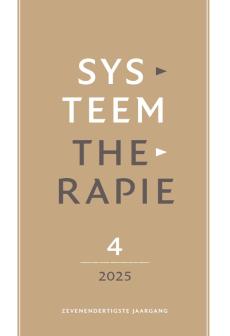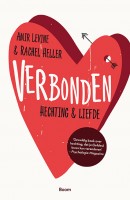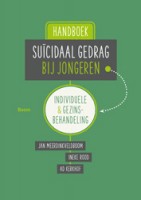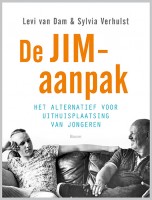‘Durven wij samen varen?’
Samenvatting
Divers onderzoek toont een verband aan tussen een onveilige hechtingsstijl en alcoholgebruik. Bij koppels waarbij een verslaving aanwezig is, kan het grondthema gehechtheid een belangrijke leidraad zijn in de behandeling. In deze bijdrage wordt het verband tussen relationele conflicten en alcoholverslaving vanuit het gehechtheidsperspectief belicht en verslaving beschouwd als een triangulator die afstand en nabijheid voor het koppel reguleert. In de ontwenningsafdeling van de Sint-Jozefkliniek te Pittem gaat men met koppels aan de slag in een multi-koppelgroep. Naast nuchterschap is het doel van deze groep om met het koppel tot een meer gewenste balans te komen tussen afstand en nabijheid. Op die manier vermindert de kans op het herinstalleren van de afstandsregulator. Aan de hand van korte casussen wordt deze zoektocht van het koppel geïllustreerd.
Summary ‘Dare we sail together?’ Substance abuse as attachment regulator in couple relationships
Various research shows a connection between insecure attachment styles and substance abuse. In couples in which substance abuse is the case, attachment can serve as the basic theme and guiding principle for treatment. The article discusses the link between relational conflict and substance abuse from an attachment perspective. The author considers substance abuse as a triangulator and third partner that regulates distance and closeness between the couple. At the drug treatment centre of the Sint-Jozef Clinic (Pittem, Belgium) the couple is treated in a multi-couple group. Besides sobriety the group treatment aims at reaching a more advisable balance between closeness and distance in the couple, thus diminishing the risk of the couple re-installing a ‘go-between’ and distance regulator. Brief case examples illustrate the couple’s quest for intimacy.
Literatuur
- Ainsworth, M.D.S., Blehar, M.C., Waters, E., & Wall, S. (1978). Patterns of attachment. A psychological study of the strange situation. Hillsdale, N.J.: Erlbaum.
- Allen, J.G., Fonagy, P., & Bateman, A.W. (2008). Mentaliseren in de klinische praktijk. Amsterdam: Nieuwezijds.
- Ansoms, S., Casselman, J., Matthys, F., & Verstuyf, G. (red.) (2004). Hulpverlening bij problematisch alcoholgebruik. Antwerpen/Apeldoorn: Garant.
- Asen, E. (2005). Von Multi-Institutionen-Familien zur Selbsthilfe. Zeitschrift für Systemische Therapie und Beratung, 23, 166-171
- Asen, E. (2010). Groepsgezinstherapie. Gezinstherapie Wereldwijd, 21(3), 233-245
- Boulogne, H., & Duintjer, F. (2008). Verslaving. In A. Savenije, M.J. van Lawick, & E.T.M.
- Reijmers (red.), Handboek systeemtherapie (pp. 683-693). Utrecht: De Tijdstroom.
- Bowers, G.T., & AL-Redha, M.R. (1990). A comparison of outcome with group/marital and standard/individual therapies with alcoholics. Journal of Studies on Alcohol, 51(4), 301-309.
- Bowlby, J. (1988). A secure base. Clinical implications of attachment theory. London: Routledge.
- Burge, D., Hammen, C., Davila, J., & Daley, S.E. (1997). The relationship between attachment cognitions and psychological adjustment in late adolescent women. Development and Psychopathology, 9(1), 151-167.
- Byng-Hall, J. (2002). Relieving parentified children’s burdens in families with insecure attachment patterns. Family Process, 41(3), 375-388.
- Cooper, M.L., Shaver, P.R., & Collins, N.L. (1998). Attachment styles, emotion regulation, and adjustment in adolescence. Journal of Personality and Social Psychology, 74(5), 1380-1397.
- Dallos, R. (2006). Attachment narrative therapy. London: Open University Press.
- Depestele, L., & Vandereyken, W. (2007). Familiegroepstherapie bij jongeren met een eetstoornis. Systeemtherapie, 19(4), 217-233.
- Epstein, E.E., & McCrady, B.S. (1998). Behavioral couples treatment of alcohol and drug use disorder. Current status and innovations. Clinical Psychology Review, 18(6), 689-711.
- Fals-Stewart, W., Klosterman, K., Yates, B.T., O’Farrell, T.J., & Birchler, G.R. (2005). Brief relationship therapy for alcoholism. A randomized clinical trial examining clinical efficacy and cost-effectiveness. Psychology of Addictive Behaviors, 19(4), 363-371
- Feeney, J.A. (1999). Issues of closeness and distance in dating relationships. Effects of sex and attachment style. Journal of Social and Personal Relationships, 16(5), 571-590.
- Govaerts, J.M. (2007). Hechtingsproblemen in gezinnen. Leuven: LannooCampus.
- Hebbrecht, M. (2006). Hoe ontstaat middelenafhankelijkheid ? In M. Kinet (red.), Zuchtigheid en afhankelijkheid (pp. 25-66). Antwerpen/Apeldoorn: Garant.
- Hoste, M. (2010). Verslaving. De ideale voedingsbodem voor parentificatie. In M. Kinet (red.), Parentificatie. Als het kind te snel ouder wordt (pp. 123-145). Antwerpen/Apeldoorn: Garant.
- Johnson, S.M. (2004). The practice of emotionally focused couple therapy. Creating connection. New York/Hove: Brunner-Routledge.
- Johnson, S.M. (2006). De gehechtheidtheorie als een gids voor relatietherapie. In L. Migerode & J. van Bussel (red.), Als liefde alleen niet volstaat (pp. 29-50). Leuven: LannooCampus.
- Lange, A. (2006). Gedragsverandering in gezinnen. Groningen: Wolters-Noordhoff.
- Lawick, J. van (2008). Hechtingsperspectief. In A. Savenije, M.J. van Lawick, & E.T.M. Reijmers (red.), Handboek systeemtherapie (pp. 215-225). Utrecht: De Tijdstroom.
- Loose, R. (2006). A(d)dictie: een woordeloze genieting. In M. Kinet (red.), Zuchtigheid en afhankelijkheid (pp. 67-88). Antwerpen/Apeldoorn: Garant.
- Matthys, F. (2000). Leven met een verslaafde. Antwerpen/Apeldoorn: Garant.
- Marshal, M.P. (2003). For better or for worse? The effects of alcohol use on marital functioning. Clinical Psychology Review, 23(7), 959-997.
- McCrady, B.S., & Epstein, E.E. (1995). Marital therapy in the treatment of alcohol problems. In N.S. Jacobson, & A.S. Gurman (Eds.), Clinical handbook of couple therapy (pp. 369-393). New York: Guilford.
- Muller, N., & Kate, C. ten (2008). Mentaliseren bevorderende therapie in relaties en gezinnen. Systeemtherapie, 20(3), 117-132.
- O’Farrell, T.J. (1993). A behavioral marital therapy couples’ group program for alcoholics and their spouses. In T.J. Farrell (Ed.), Treating alcohol problems. Marital and family interventions. New York: Guilford.
- O’Farrell, T.J., & Fals-Stewart, W. (2003). Alcohol abuse. Journal of Marital & Family Therapy, 29(1), 121-146. Nederlandse vertaling (2005): Alcoholmisbruik. Gezinstherapie Wereldwijd, 16(2),156-206.
- Tempe, J. de (2006). Emotionally focused therapy voor paren. Systeemtherapie, 18(4), 118-237.
- Thoomes-Vreugdenhil, A. (2006). Behandeling van hechtingsproblemen. Houten: Bohn Stafleu van Loghum.
- Tricht, K. van, Lemmens, G., & Demyttenaere, K. (2008). Groepsgezinstherapie bij verslaafden binnen een urgentiepsychiatrische dienst. Systeemtherapie, 20(1), 5-17.
- Vungkhanching, M., Sher, K. J., Jackson, K.M., & Parra, G.R. (2004). Relation of attachment style to family history of alcoholism and alcohol use disorders in early adulthood. Drug and Alcohol Dependence, 75(1), 47-53.
- Wagenaar, K., & Quené, H. (2008). Hechting en emoties. Emotionally focused therapy. In A. Savenije, M.J. van Lawick, & E.T.M. Reijmers (red.), Handboek systeemtherapie (pp. 347-354). Utrecht: De Tijdstroom.
- Willi, J. (1983). De partnerrelatie. Ontstaan, ontwarren en verhelderen van conflicten. Rotterdam: Donker.
- Willi, J. (2003). Psychologie van de liefde. Jezelf ontwikkelen door partnerrelaties. Tielt: Lannoo.
 © 2009-2026 Uitgeverij Boom Amsterdam
© 2009-2026 Uitgeverij Boom Amsterdam
ISSN 0924-3631
De artikelen uit de (online)tijdschriften van Uitgeverij Boom zijn auteursrechtelijk beschermd. U kunt er natuurlijk uit citeren (voorzien van een bronvermelding) maar voor reproductie in welke vorm dan ook moet toestemming aan de uitgever worden gevraagd:
Behoudens de in of krachtens de Auteurswet van 1912 gestelde uitzonderingen mag niets uit deze uitgave worden verveelvoudigd, opgeslagen in een geautomatiseerd gegevensbestand, of openbaar gemaakt, in enige vorm of op enige wijze, hetzij elektronisch, mechanisch door fotokopieën, opnamen of enig andere manier, zonder voorafgaande schriftelijke toestemming van de uitgever.
Voor zover het maken van kopieën uit deze uitgave is toegestaan op grond van artikelen 16h t/m 16m Auteurswet 1912 jo. Besluit van 27 november 2002, Stb 575, dient men de daarvoor wettelijk verschuldigde vergoeding te voldoen aan de Stichting Reprorecht te Hoofddorp (postbus 3060, 2130 KB, www.reprorecht.nl) of contact op te nemen met de uitgever voor het treffen van een rechtstreekse regeling in de zin van art. 16l, vijfde lid, Auteurswet 1912.
Voor het overnemen van gedeelte(n) uit deze uitgave in bloemlezingen, readers en andere compilatiewerken (artikel 16, Auteurswet 1912) kan men zich wenden tot de Stichting PRO (Stichting Publicatie- en Reproductierechten, postbus 3060, 2130 KB Hoofddorp, www.cedar.nl/pro).
No part of this book may be reproduced in any way whatsoever without the written permission of the publisher.
Nieuwsbrief Boom Psychologie
Meld u nu aan en ontvang maandelijks de Boom Psychologie nieuwsbrief met aantrekkelijke aanbiedingen en de nieuwe uitgaven.
Aanmelden



